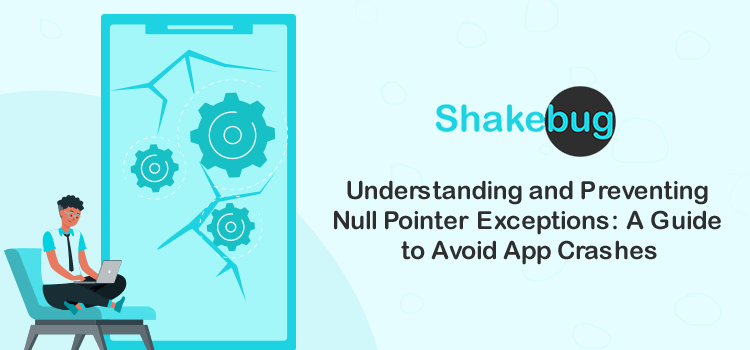Null pointer exceptions are a frequent cause of app crashes, which can be frustrating for both developers and users. In this guide, we’ll talk about what null pointer exceptions are, why they happen, and how to avoid them in your code. Understanding the root causes of these errors allows you to build more stable and reliable apps with a better user experience. So, let’s explore the world of null pointer exceptions and learn how to avoid them!
What is a Null Pointer Exception?
A Null Pointer Exception is a programming error that occurs when an object or variable is not assigned a value. This can occur for a variety of reasons, including failing to initialize the object or attempting to access an element of an array that does not exist. It is critical for programmers to understand and avoid these exceptions because they can cause programs to crash and yield unexpected results. Developers can avoid this issue by properly handling and checking for null values before accessing objects.
Impact of Null Pointer Exceptions on App Performance
Null Pointer Exceptions (NPEs) are a common problem in software development that may significantly impact app performance. An NPE occurs when a program attempts to access or use a null object that does not exist. This can lead to crashes and errors within the app, causing frustration for users and potentially damaging the reputation of the developer.
To prevent NPEs, developers must thoroughly understand their code and use proper error-handling techniques. Addressing this issue early in the development process allows apps to run more smoothly and provide a better overall user experience.
Identifying Null Pointer Exceptions
Null pointer exceptions are a common and frustrating issue for developers. These errors occur when the program attempts to access an uninitialized object or variable, which results in a null value. Understanding how and why these errors occur is critical for preventing them. Identifying null pointer exceptions entails thoroughly reviewing your code and looking for any instances in which objects or variables were not properly initialized before being used. Addressing these issues early on can help you avoid future headaches and ensure that your program runs smoothly.
Strategies for Null Pointer Exception Prevention
Null pointer exceptions can be a frustrating and time-consuming issue for developers. These errors occur when an application tries to access or use an object that has not been initialized, resulting in the program crashing. To prevent these issues from occurring, there are several strategies that developers can implement.
One approach is to always check for null values before using them in code. Another strategy is to use defensive programming techniques such as validating user input and handling potential null values with conditional statements.
Additionally, utilising tools like debuggers and unit testing can help identify potential null pointer exceptions during development stages rather than after deployment.
By implementing these prevention strategies, developers can save time and ensure their applications run smoothly without any unexpected crashes due to null pointer exceptions.
Best Practices in Null Pointer Exception Handling
Null pointer exceptions can be a common issue in programming, especially when working with object-oriented languages. These errors occur when the program tries to access an object or variable that has not been initialized or does not exist.
To prevent these errors from occurring, developers need to follow best practices in null pointer exception handling. This includes always checking for null values before using them, properly initializing objects and variables, and utilizing try-catch blocks to handle potential exceptions.
By following these guidelines, programmers can ensure their code runs smoothly without any unexpected crashes due to null pointer exceptions.
Conclusion
In conclusion, understanding and preventing null pointer exceptions is crucial for developers to create efficient and reliable code. By following best practices such as checking for null values before accessing them, using proper exception handling techniques, and utilizing tools like static code analysis, developers can minimize the occurrence of these errors in their programs.
It is important to continuously educate oneself on how to prevent these exceptions as technology evolves and new programming languages emerge.
With a solid understanding of this concept, programmers can ensure that their applications run smoothly without any unexpected crashes or bugs caused by null pointers.


